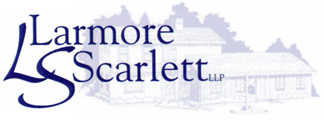Whether you live in Pennsylvania or another part of the country, you probably want to put your assets and money to the best use, both while you are living and after your death. Trusts, often overlooked, are one of the best ways to not only protect your assets, but to take advantage of benefits, such as tax breaks.
The most popular trusts are living trusts and testamentary trusts — the big difference being that living trusts are in effect while you are alive, and testamentary trusts are set up in a will and do not go into effect until your death.
Living trusts can be revocable or irrevocable. In a revocable living trust, you maintain control of the assets in the trust and can make changes to them at any time. In an irrevocable trust, another person is named over the trust, and while you may still make changes to the assets within, you must have his or her permission to do so. He or she controls the assets.
There are several other trusts that can supply tax breaks or other benefits to you or your heirs. One of those is called a credit shelter trust. In this trust, you can will a portion of your estate — up to the estate tax exemption amount — to the trust. The remainder of your estate can be willed to your beneficiaries tax-free. The good thing about this trust is that the amount put into the trust will remain tax-free, even if it appreciates in value.
If you are worried about taxes eating up your heir’s inheritance, another beneficial trust is an irrevocable life insurance trust. This trust allows you to put an insurance policy into a trust, removing it from your taxable estate. The policy can then be used to fund any estate fees at the time of your death, as well as provide tax-free cash to your beneficiaries.
A generation-skipping trust will allow you to transfer large amounts of tax-free money to grandchildren or heirs who are at least two generations down.
A qualified personal residence trust can be used for a vacation property or personal residence. By putting your property in a trust, the value is removed from your estate. One benefit is that it is no longer affected if it appreciates in value.
If you are planning your estate planning, you don’t want to overlook the value of a beneficial trust.
Source: CNN Money, “Ultimate guide to retirement: What kinds of trusts are there?” Dec. 24, 2014

